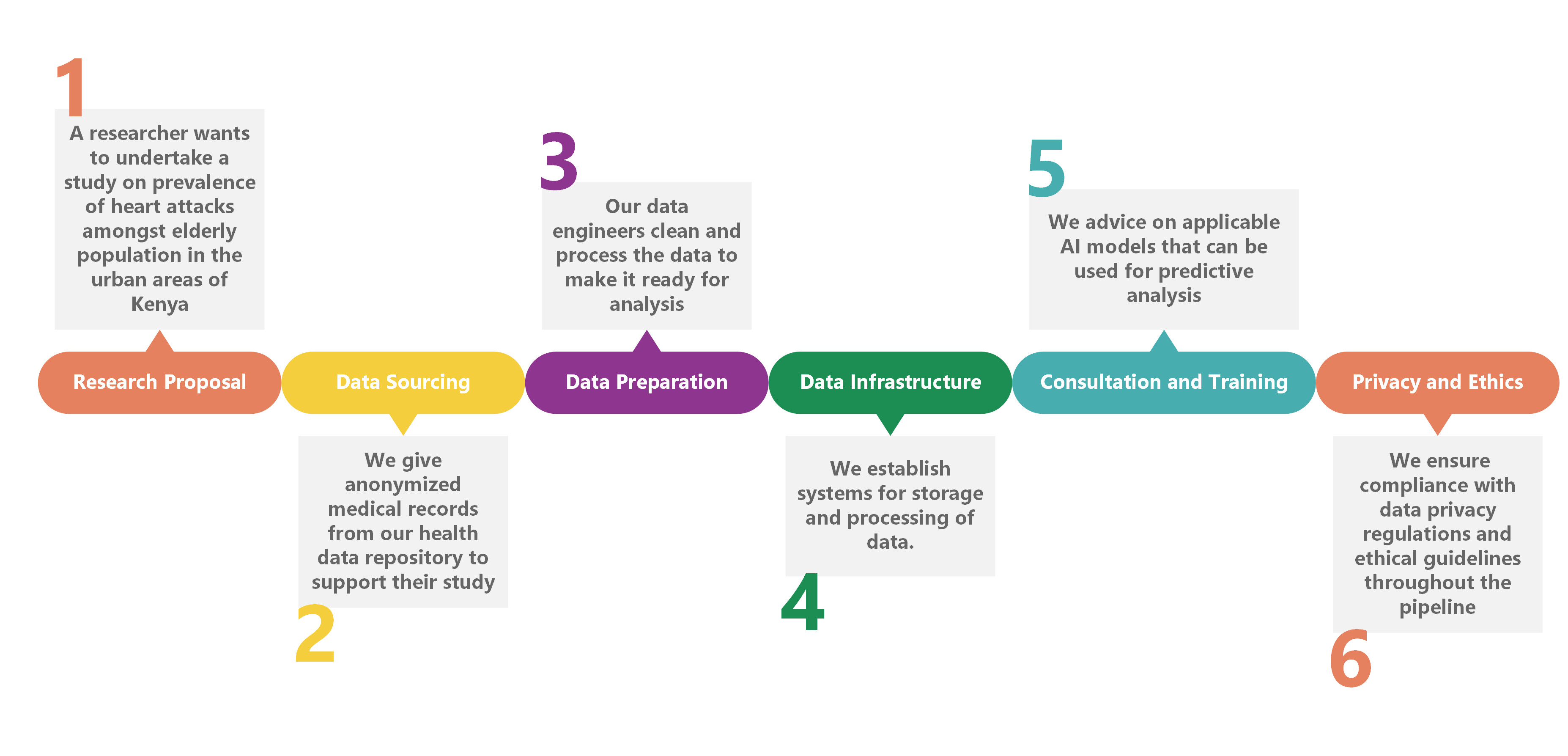The Aga Khan University’s Data Innovation Office (DIO) leads cutting-edge research that transforms how constrained resources are utilized across low- and middle-income countries (LMICs). By harnessing advanced analytics, we develop innovative, impactful solutions that drive sustainable development and address real-world challenges.
The University’s strategic investment in the DIO reflects a commitment to advancing data-intensive research methodologies. We support projects that operate on a modern data stack, leveraging cloud-native infrastructure and open-source algorithms to ensure scalability, flexibility, and cost-effectiveness.
A core focus of the DIO is to leapfrog traditional Western models by developing bold, data-driven approaches to population health challenges in East Africa. Every research initiative we support follows a cloud-first, open-source architecture, enabling rapid experimentation and continuous improvement based on emerging technologies and global best practices.
Our team operates with agility and intent—prioritizing ethical integrity, regulatory compliance, and local relevance. We are deeply aligned with country-specific data protection laws, and our solutions are optimized for impact within budget-conscious LMIC environments.
Through this approach, the DIO is not only advancing the frontiers of AI and data science but also reshaping how research can catalyze progress in resource-constrained settings.
How do we support researchers?


